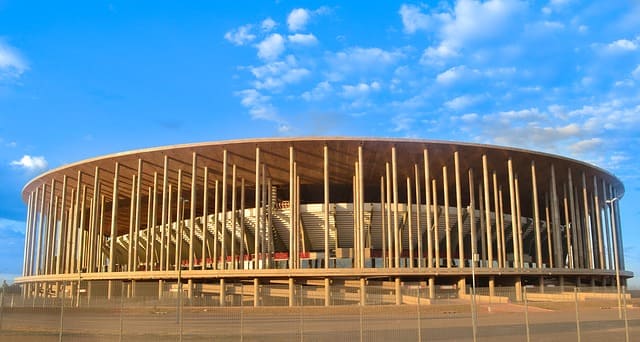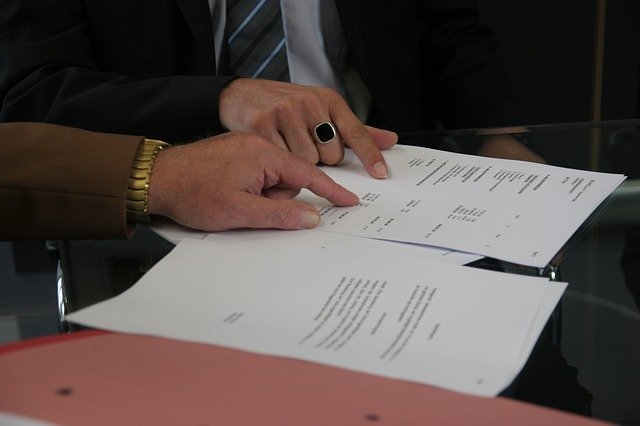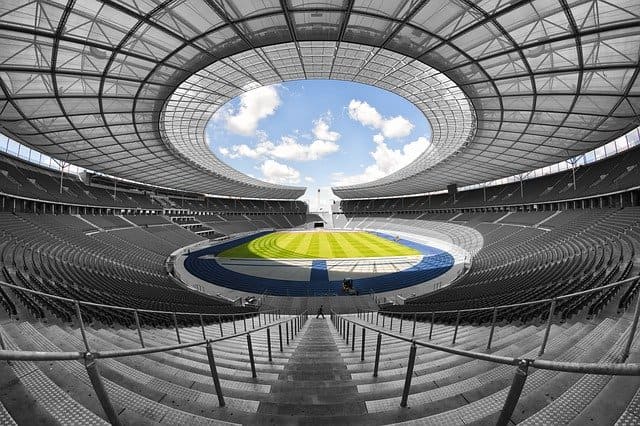FIFA covid-19 Guideline – Legal issues
Almost a few months ago the ball stopped rolling. The fight against COVID -19 is tough, arduous and it will take time to get things back to normal.
A large number of activities are strongly affected, and football is one of them.
With football practically paralyzed around the world, conflicts begin to appear:
On April 7 2020, FIFA published a series of recommendations and guidelines to address some of the key practical issues arising from the pandemic, especially with regard to player contracts and the transfer system.
This has been done in consultation with different stakeholders through a task force chaired by the FIFA Vice-President and chairman of the FIFA Football Stakeholders Committee, Vittorio Montagliani, and including representatives of clubs, players, leagues, national associations and confederations.
The aim of this article is to try to clarify what the current situation is, what FIFA actually ordered and the legal analysis of it. I will limit myself to commenting only on some of the most relevant aspects of the document issued by FIFA in order not to make the article very extensive.
First of all, we must say that the document published by FIFA is not mandatory, nor does it turn out to be a modification of its regulations, but rather they are non-binding recommendations or guidelines so that the member associations (MAs), Clubs and Players / Coaches can face the different decisions that they must take before the pandemic situation and health crisis we are experiencing.
That is why FIFA, in a highly complex scenario, has chosen to make mere non-binding suggestions or recommendations, instead of making mandatory changes to its regulations.
Both FIFA and MAs cannot compel the extension of an employment contract, since, being mere non-profit civil associations, they cannot “legislate” on issues that are of common law and order public, and should be limited to the issues of the competitions they regulate. In any case, it is very common for the MAs and FIFA to regulate in excess of their powers. It would not surprise me if any of the MAs modifies these guidelines into a federative internal norm. If this is the case, its legality should be analyzed.
On the other hand, although these recommendations are not mandatory, they provide us with an overview of the position FIFA's will stand for in the face of possible legal conflicts.
With this approach, we will proceed to analyze the different recommendations made by FIFA:
At the beginning of the document, FIFA defines that the alterations caused by COVID-19 must be considered as a case of force majeure. Although this definition is somewhat imprecise, it turns out to be important and we will surely see it reflected in the different committee’s decisions. We understand that the Court of Arbitration for Sport (CAS), if necessary, will adopt the same position.
It would be unthinkable that someone could understand that this health crisis is not legally considered a case of force majeure. In the coming months, the impacts of COVID 19 will be increasingly strong, which will inevitably affect the fulfillment of obligations and commitments by all participants of the football industry.

Likewise, FIFA requires the parties to follow certain attitudes and behaviors at the time of facing this crisis, which we can summarize in the concept of "shared effort".
We note that it requires all participants to cooperate and reach fair and reasonable solutions for all parties. It also requires avoiding unilateral decisions, thus promoting dialogue and negotiation.
Although these requests from FIFA could be considered a mere expression of wishes, I think they should be analyzed as a legal definition in itself. Because COVID-19 affects all parties and not just one of them, I believe that FIFA will require an effort from all parties to reach fair solutions. While it is true that force majeure may be an excuse to fulfill certain obligations, I trust that FIFA will apply the concept of shared effort, requesting that each party make its best effort to reach agreements.
FIFA is likely to be more flexible in the face of non-compliances due to COVID-19, but it will also analyze what the parties' attitude was and whether each one did their part to resolve the conflict.
This is one of the most critical points and about which we will see the greatest number of conflicts. Likewise, it is the topic that generated the largest number of opinion pieces and a large number of journalistic notes, many of which did nothing but contribute false information and greater confusion.
FIFA made a series of recommendations regarding: I. employment agreements that are due to expire at the original end date of the season; II. loan transfer agreements (and related employment agreements) that are due to expire at the original end date of the season; III. (permanent and loan) transfer agreements (and related employment agreements) that are due to commence at the original start date of the next season; IV. employment agreements that are due to commence at the original start date of the next season.
Many have been saying that FIFA “extended” the duration of the contracts until the end of the season or that it “postponed” the entry into force of the new contracts, until the season ends. This is false. Agreements that expire on a certain date will be maintained and those transfer agreements that have already been signed are still fully valid. To extend the validity of an employment contract or to extend its beginning date, it will be necessary to reach individual agreements, and any federal rule that seeks to determine it generically and collectively must be considered illegitimate.

FIFA itself clarifies that, as a general rule, employment agreements shall be governed by national law and the contractual autonomy of the parties, and they also recommend:
- Where an agreement is due to expire at the original end date of a season, such expiry be extended until the new end date of the season.
- Where an agreement is due to commence at the original start date of a new season, such commencement be delayed until the new start date of a new season.
- In the event of overlapping seasons and/or registration periods, and unless all parties agree otherwise, priority be given to the former club to complete their season with their original squad, in order to safeguard the integrity of a domestic league, MA competition and continental competition.
The above shall apply to international transfer agreements by analogy. Furthermore, for international transfer agreements (whether a permanent transfer or loan transfer):
- Notwithstanding the recommended amendment to agreement dates, any payment that contractually falls due prior to the new commencement date of an agreement should be delayed until the new start date of a new season or its first registration period.
In summary, we must once again point out that the agreements were NOT automatically extended and / or delayed for these provisions made by FIFA and that individual agreements are still required to determine this. Times of great conflict are coming in relation to this point.

At this point, FIFA understands that many contracts will not be able to be fulfilled in the way that the parties had established beforehand due to COVID-19.
On the one hand, the Clubs have been seriously affected in their economy and, if this continues to deepen, it will be worse. On the other hand, the players and coaches cannot carry out their tasks, which also impacts other ways of obtaining income (sponsors and commercial agreements), as well as deteriorates the quality of their performance due to the impossibility of completing their training.
In this sense, FIFA requires all parties to abide by what is established in their local regulations, but, at the same time, recommends reaching fair and equitable solutions for all parties, with the aim of: 1. ensuring that players and coaches receive some type of remuneration; 2. avoiding disparate litigation and resolutions of the different courts; 3. protecting contractual stability; and 4. preventing the Clubs from going bankrupt or disappearing.
As we mentioned at the beginning of the article, the position adopted by FIFA is clear and this will be seen in its next resolutions, given that although it applies force majeure to the specific case, it requires the parties to make a shared effort to reach fair, equitable and reasonable solutions. . Everyone has to contribute something.
In this sense, FIFA recommends:
- Clubs and employees (players and coaches) be strongly encouraged to work together to find appropriate collective agreements on a club or league basis regarding employment conditions for any period where the competition is suspended due to the COVID-19 outbreak.
Such agreements should address, without limitation: remuneration (where applicable salary deferrals and/or limitation, protection mechanisms, etc.) and other benefits, government aid programmes, conditions during contract extensions, etc.
Where the relevant social partners exist, agreement should be reached within CBA structures or another collective agreement mechanism
Unilateral decisions to vary agreements will only be recognised where they are made in accordance with national law or are permissible within CBA structures or another collective agreement mechanism. Where:
- aclubs and employees cannot reach an agreement, and b. national law does not address the situation or collective agreements with a players’ union are not an option or not applicable,
- Unilateral decisions to vary terms and conditions of contracts will only be recognised by FIFA’s Dispute Resolution Chamber (DRC) or Players’ Status Committee (PSC) where they were made in good faith, are reasonable and proportionate. When assessing whether a decision is reasonable, the DRC or the PSC may consider, without limitation:
- whether the club had attempted to reach a mutual agreement with its employee(s);
- the economic situation of the club;
- the proportionality of any contract amendment;
- the net income of the employee after contract amendment;
- whether the decision applied to the entire squad or only specific employees
- Alternatively, all agreements between clubs and employees should be “suspended” during any suspension of competitions (i.e. suspension of football activities), provided proper insurance coverage is maintained, and adequate alternative income support arrangements can be found for employees during the period in question.
As we can see, FIFA understands that the problem is complex and asks ALL parties for collaboration, using common sense and good faith. We will see what happens in the next few days and if cases come to the orbit of FIFA, in which case it will be possible to assess whether or not it is jurisdictionally competent to understand such conflicts.
FIFA gives full freedom to member associations to determine the end dates of competitions as well as the length of the registration periods. All requests to extend or amend registration periods that have already commenced shall be approved, provided that their duration complies with the maximum limit (i.e. 16 weeks) established in the RSTP.
It is important to note that it also highlights the relevance of ending competitions, since many have been considering the possibility of canceling them, in the same way that has happened in other sports.

Likewise, it maintains that the registration of player contracts should be allowed outside of the registration period established by the Federation, in the event that their contract had expired or had been terminated as a result of COVID-19.
RELEASE OF PLAYERS TO ASSOCIATION TEAMS
In this sense, it established a dispensation for the MAs to comply with the requirements established in articles. 1 (men's soccer), 1 bis (women's soccer) and 1 ter (futsal) of annex 1 of the RETJ that force the clubs to transfer their players to the national teams. On the other hand, if a club agrees to release a registered player to an association team, the player may decline the call-up.
This exception is only available, for the moment, for the international dates scheduled for March 23-31, 2020 and June 1-9, 2020 (international men's calendar), April 6-15, 2020 and 1-10 of June 2020 (international women's calendar) and 6-15 April 2020 (international futsal calendar).
LOANS
FIFA has postponed the entry into force of the limitation on the number of loans that clubs can make according to the last modification of the RETJ that was scheduled to start on July 1, 2020. There is not a certain date when they will take effect.
ENFORCEMENT OF DECISIONS RENDERED BY THE DRC, THE PSC OR THE DISCIPLINARY COMMITTEE IN THE CONTEXT OF RSTP MATTERS
Although FIFA understands that the parties are experiencing a complex economic situation, it determined that executions of economic decisions established by the Dispute Resolution Chamber, the Player Statute Commission or the Disciplinary Commission are NOT suspended. In the event that these decisions are not respected, FIFA will continue to apply art. 15 of the FIFA Disciplinary Code.
EXTENSION OF DEADLINES IN PROCEEDINGS RELATED TO FIFA
As a general rule, requests for extensions of a deadline are dealt with on a case-by-case basis. Specific requests related to COVID-19 should, in principle, be accepted. It has been decided that the maximum deadline can be extended up to 15 days, at the prior request of the respective party.
Related links
Main menu






